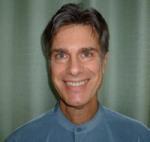(Written by Ed Glauser, M.Ed., N.C.C., LPC, Owner and Clinician, Mind Body Medicine Network, LLC)
I am writing this blog in the context of Larry Cammarata, Ph.D.’s clinical webinar entitled “Stress Management for Body, Mind 
One of the many things I enjoy most about Dr. Cammarata’s work is his emphasis on self-mastery as opposed to primarily focusing on stress management techniques. The term “self-mastery” is more empowering and refers to a deeply rooted, integrated way of being; the effectiveness of “stress management” techniques is enhanced by the person who practices the techniques with the committed intention to develop self-mastery. I wholeheartedly recommend a book that Dr. Cammarata recently co-authored entitled, “A Year of Living Mindfully: 52 Quotes & Weekly Mindfulness Practices.”
For me, the key to self-mastery lies in practicing mindfulness on a daily basis.

Daily mindfulness practice reorients body and mind to anchor deeply to the present moment. Here are my suggestions for enjoying a daily mindfulness practice that will help move you in ten mindful steps to a place of self-mastery, and reduce your stress significantly:
Step 1: Realize that life is only found in the present moment, so when you find yourself stressing about the past or future, or something is distressing to you in your current life, allow yourself to say “STOP” to activities of the mind and body, and “return to the present moment, the only moment where life is found.”
Step 2: Observe the breath going in and out of your body, noticing other thoughts, feelings, sensations, distractions as just temporary mental formations, and return again to the breath.
Step 3: Observe the body and allow the breath to go to any tight or tense places to nurture and partner with that part of the body that may be in distress.
Step 4: Practice non-judgment and gentle compassion to yourself and the temporary images, feelings, thoughts, and sensations of mind and body. When you do this, you are de-centering, which means you are seeing yourself as bigger than temporary present moment difficulties or worries about the past, present, or future.
Step 5: Allow for both healing and distress to be together peacefully, just toggling back and forth and seeing that both can co-exist at the same time. Healing begins to take care of the distress in no time!
Step 6: Bring metaphor to your present moment experience. For example, you can imagine yourself as a loving parent or friend bringing kindness, love, and patience to what is a fragile and distressing part of your present moment experience.
Step 7: Observe, notice, observe, notice. When you practice observation or noticing instead of judgment, you can just watch, notice, and witness, and not become overwhelmed and victimized by any distress.
Step 8: Allow yourself to notice the healing aspects of your present moment experience little by little, as you gently allow yourself to notice what is pleasant in the here and now. Examples can include thinking about a loved one, enjoying aspects of nature, reciting a prayer or meditation, enjoying your breath, the gift of life, and creation.
Step 9: Move closer to self-mastery by going towards, and not away from what is distressing so you are noticing how you are able to better self-regulate and withstand distress; notice that you are more empowered than you think and can handle anything, just allowing distress to dissipate gradually over time.
Step 10: Notice the neutral things in your present moment experience and transform what is neutral or distressing into something very nurturing. Examples include experiencing gratitude as you are taking a shower, brushing your teeth, taking out the trash, sweeping the floor, eating a meal, or the non-toothache. Thich Nhat Hanh, a famous Buddhist monk who was nominated for a Nobel Peace Prize in the 1960’s by Dr. Martin Luther King, Jr., shares that an awareness of what is not hurting you or causing you irritation in the present moment, can deepen your enjoyment of the present moment, and allow you to live life more fully and deeply in the present moment.
As you practice the ten mindful steps to self-mastery and lessen all forms of distress in your life with daily practice, you will begin to enjoy life at a deeper level, have more fulfilling relationships, develop better boundaries around what is distressing and feel empowered in your life.

Larry Cammarata, Ph.D., Clinical Psychologist
For an even more in-depth understanding of the keys to self-mastery for “Stress Management in Mind. Body, and Relationships,” please join us for our next clinical webinar with Larry Cammarata, Ph.D. on Sunday, August 19, 2012 at 7:00 p.m. EST. This 90-minute interactive and engaging webinar will be recorded so if you miss the live broadcast and interaction with Dr. Cammarata, your registration will ensure that you receive a recording of the webinar. For more information and to register for the webinar, please register HERE.
Ed Glauser, M.Ed., N.C.C., LPC
Owner and Principal Clinician
Mind Body Medicine Network, LLC
www.mindbodymedicinenetwork.com/Webinars.html

